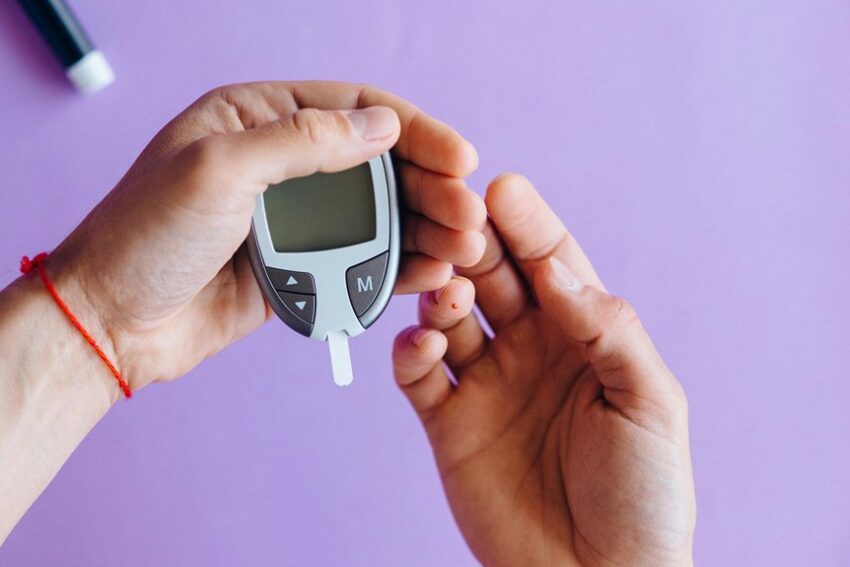If your blood sugar is over 300, it’s vital to act promptly. First, confirm your reading with another test. Staying hydrated is essential—drink plenty of water to help flush out excess sugar. You might need to take into account taking insulin if it’s prescribed, but always consult your healthcare provider first. Monitoring your symptoms closely can make a big difference. But what should you do next to guarantee your safety and health?
Immediate Steps to Take When Blood Sugar Is High
When your blood sugar spikes above 300 mg/dL, it’s essential to act quickly to prevent serious complications.
Start by checking your blood sugar again to confirm the reading. If it’s still high, drink plenty of water to help flush out excess sugar from your system. Avoid caffeine and sugary drinks, as they can worsen the situation.
If you’re on insulin, consider taking a dose, but consult your healthcare provider’s guidance. Monitor your symptoms closely; if you experience nausea, vomiting, or extreme fatigue, seek medical attention immediately.
Finally, keep a record of your readings and any symptoms to discuss with your doctor. Taking these steps can help stabilize your blood sugar and protect your health. Additionally, consider looking into natural supplements like CelluCare, which may support blood sugar regulation and overall metabolic health.
Understanding the Causes of High Blood Sugar
High blood sugar can stem from a variety of factors that often go unnoticed.
Stress is a major contributor; when you’re anxious or overwhelmed, your body releases hormones that raise blood sugar levels.
Poor diet plays a significant role too—consuming high-carb meals or sugary snacks can spike your glucose.
Lack of physical activity can also hinder your body’s ability to use insulin effectively.
Certain medications and health conditions, like infections or hormonal disorders, may further complicate your blood sugar control.
Finally, dehydration can lead to higher blood sugar levels, as your body struggles to eliminate excess glucose.
Recognizing these causes is essential for better management of your blood sugar levels.
Safe Ways to Lower Blood Sugar Levels
Although managing blood sugar levels can feel overwhelming, there are effective and safe strategies you can implement to bring your numbers down.
Start by drinking plenty of water to help flush out excess sugar. Incorporate physical activity, like a brisk walk, which can greatly lower blood sugar levels.
Focus on eating balanced meals rich in fiber, lean proteins, and healthy fats, while avoiding refined carbs and sugary snacks. Monitor your portion sizes to maintain better control.
Consider practicing mindfulness techniques, such as deep breathing or meditation, to reduce stress, which can impact your blood sugar.
Finally, if you’re on medication, be sure to take it as prescribed. These simple changes can make a big difference in managing your blood sugar effectively.
Recognizing When to Seek Medical Attention
It’s crucial to recognize the signs that indicate you need to seek medical attention if your blood sugar levels soar above 300.
If you experience symptoms like excessive thirst, frequent urination, fatigue, or nausea, don’t ignore them. These could signal a serious condition like diabetic ketoacidosis.
Rapid breathing, confusion, or a fruity smell on your breath are red flags that require prompt medical care.
Additionally, if your blood sugar remains high after trying to lower it, it’s time to reach out to your healthcare provider.
Always trust your instincts; if something feels off, don’t hesitate to seek help. Your health is a priority, and timely intervention can prevent complications and keep you safe.
Long-term Strategies for Blood Sugar Management
After addressing immediate health concerns, focusing on long-term strategies for blood sugar management is vital for overall well-being.
Start by adopting a balanced diet rich in whole grains, lean proteins, and plenty of fruits and vegetables. Regular exercise, like walking or cycling, can greatly improve your insulin sensitivity.
Keep track of your blood sugar levels consistently; this will help you identify patterns and triggers. Don’t forget to stay hydrated and manage stress through techniques like meditation or yoga.
Compliance with any prescribed medications is critical, so don’t skip doses. Finally, regular check-ups with your healthcare provider will guarantee you’re on the right track.
With commitment and the right strategies, you can effectively manage your blood sugar levels over the long term.
